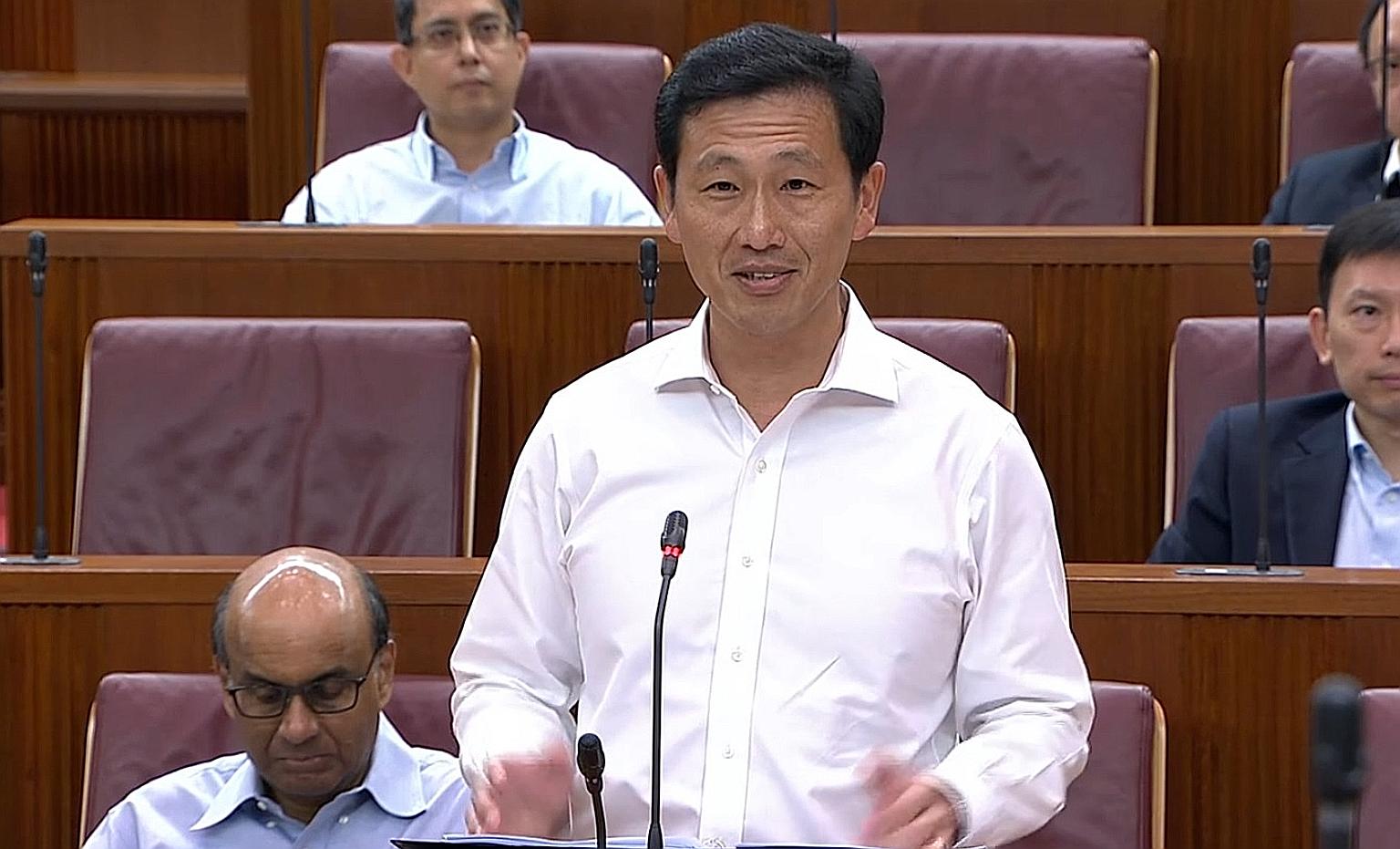Debate on ministries’ budgets
Parliament: Streaming helped reduce school dropout rates, says Ong Ye Kung
Social stratification would have been worse without it, but the system also had downsides
Sign up now: Get tips on how to help your child succeed

Education Minister Ong Ye Kung
There have been concerns about the Normal stream and its negative side effects, but without streaming, social stratification would have worsened, Education Minister Ong Ye Kung said yesterday.
In the early years of Singapore's independence in the 1970s, a third of every cohort dropped out of school. Today, the figure is less than 1 per cent. "So, I urge members not to casually juxtapose social stratification with streaming. Without reducing attrition through streaming, social stratification would have been far worse," said Mr Ong.
The Normal (Technical) stream, which was introduced in 1994, contributed significantly to this outcome, he said, adding: "Till today, we are still benefiting from the legacy of the 'efficiency-driven' education system."
Streaming was introduced from the 1980s to arrest the high school attrition rate, he said. "We were concerned about the huge number of dropouts who could not read or write at the end of primary school. We had to move away from a one-size-fits-all education system because if students could not catch up with their lessons, and did not understand what was taught, they would lose interest and drop out."
There are many pupils who in fact prefer a stream which allows them to study at a more comfortable pace, and they gain confidence from being a "bigger fish in a smaller pond", he added.
Still, there are downsides to streaming, said Mr Ong, including stigmatisation, and over the years there have been significant changes to the streaming system, such as how streaming was phased out in primary schools by 2008, and the introduction of subject-based banding since the mid-2000s.
"We are now ready to take a further, major move," said Mr Ong. This includes the roll-out of full subject-based banding starting next year, and then the end of streaming in 2024, when Secondary 1 students will take a combination of subjects at different levels - G1, G2 and G3.
Saying he was confident that the new system will benefit many students, he drew from his own childhood experience growing up in a Chinese-speaking family and struggling with his English throughout school.
He said that in hindsight, he could have been helped by the Learning Support Programme which is now available to primary school children who are lagging. And in secondary school, he would have been better off taking up English at a lower level to build his language skills at a slower pace.
He told Parliament that he entered Primary 1 without being able to speak or read much English. It was only in Primary 3 that he figured out phonics and started reading by himself.
"My late mother, a Chinese teacher, tried to teach me, but her English was very limited. Then some time in Primary 3, I had a eureka moment. I figured out that if 'b-a-r' reads 'bar', and 'b-e-r' reads 'ber', 'b-a-r-b-e-r' put together is barber, the guy who cuts my hair. In other words, I figured out phonics," he said.
"If I were in primary school today, I would probably have been put into a Learning Support Programme, which would have done me good. In secondary school, it would also have been better for me to be placed in a less demanding band for English, which would give me time to pick up the basics, and then upgrade to the more demanding band if I could meet the standards. I should have done G2 or G1 English."
He said, like him, most students have uneven strengths, and specific weaknesses.
"It is just the way humans are. The challenge of our education system is to cater to that.
"That is the central purpose of this change.... The school system will become far more flexible than today, so that we can customise learning to the student, to give them time to blossom at different points in their lives, while anchoring the belief that we can grow and get better."


